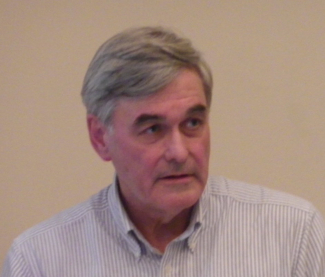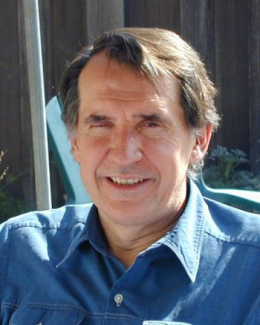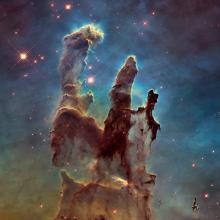Gilmore

| Education |
Gerard (Gerry) Gilmore obtained his MA, Sc.D. from Cambridge University, UK and his PhD in Astrophysics from the University of Canterbury, New Zealand. |
|---|---|
| Career |
He spend 5 years (1979-1984) at the Royal Observatory Edinburgh before moving to the Institute of Astronomy at the Univ. of Cambridge, where in 2000 he became Professor of Experimental Philosophy, FRS. He has been Scientific Coordinator of Opticon, the EC Optical Infrared Coordination Committee for Astronomy and more recently the Opticon-Radionet-Pilot. He is the UK PI of the Gaia data processing and analysis consortium; Co-PI of the Gaia-ESO Public Spectroscopic Survey. For his research he was also awarded an ERC Advanced Grant. Professor Gilmore has received numerous awards and recognitions for his contributions to astrophysics including: Fellow of the Royal Society (2013), Fellow of Academia Europaea and Institute of Physics, Honorary Fellow of Royal Astronomical Society NZ (2016), recipient of the Chalonge Medal (2013) and the De Vega medal (2015). As of 2023 he is Emeritus Professor of Experimental Philosophy. In 2023 he was elected as lifetime Honorary Fellow of the Institute of Astrophysics - FORTH. |
| Interests |
The main interests of Professor Gilmore are related to near-field cosmology. This is the use of precision studies of kinematics, dynamics, stellar populations, chemical abundances, etc. for the oldest systems in the local universe to deduce the fundamental properties of structure formation and the nature of dark matter in the early Universe. He has been intimately involved in the planning and scientific exploitation of the ESA satellite GAIA, which was launched in 2013. Moreover, as a Co-PI of the Gaia-ESO Survey, a 400+night ESO-VLT Public Spectroscopic Survey -the largest large-telescope high-quality stellar spectroscopic survey - he is leading the effort of the major complementary science to the GAIA. |
| Department |
Institute of Astronomy
|
| Affiliation |



